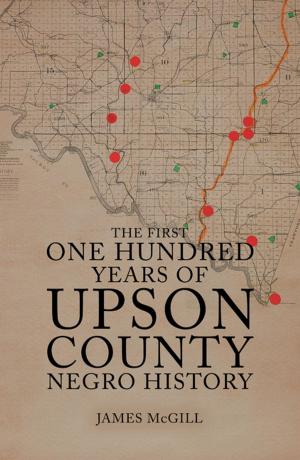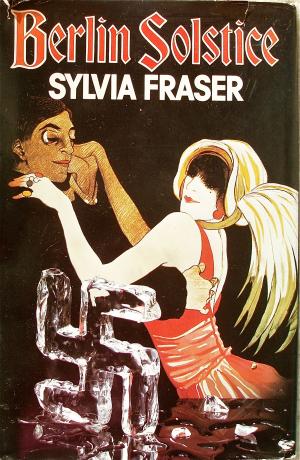| Author: | Osyp Nazaruk, Natalya Alatyreva (translator) | ISBN: | 1230002151113 |
| Publisher: | Natalya Alatyreva | Publication: | June 14, 2017 |
| Imprint: | Language: | English |
| Author: | Osyp Nazaruk, Natalya Alatyreva (translator) |
| ISBN: | 1230002151113 |
| Publisher: | Natalya Alatyreva |
| Publication: | June 14, 2017 |
| Imprint: | |
| Language: | English |
“Roxelana” is a historical novel by Ukrainian writer Osyp Nazaruk, first published in 1930, yet still considered the best work about Hürrem Sultan. The book was forbidden in the Ukrainian SSR and returned to the readers only after Ukraine gained independence in 1991. Nazaruk put a lot of effort into creating his book. He read old Polish, German, Latin sources about the Ottoman empire and Roxelana, studied Koran, books on medieval philosophers, old maps of Istanbul, legends and travellers' accounts. He added copious footnotes to explain many of the facts and traditions of that era. Throughout the book the author describes Roxelana though the prism of her Ukrainian nationality, raises the problems of religious intolerance, slave trade in Europe, occupation, oppression using poetic language and deep philosophical undertones.
The book has never been translated into English before.
Author's notes and afterword, translator's notes.
The section "Notes and Clarifications" contains the author's afterword with additional historical information, sources and explanations about how the book was written.
Osyp Nazaruk writes:
"I dedicate this work about a great Ukrainian female who sparkled with wit and happiness, decisiveness and compassion, pearls and blood, to the Ukrainian women. Dedicate to ensure that they, even in the most difficult times of their people and theirs, do not lose the cheerfulness of their spirit and were the support of their husbands and sons and the active individuals of their people – primarily through learning some profession and loving it."
"Influences – Ukrainian, Eastern, Byzantine, Western, Renaissance, and others – are woven into the colourful carpet of the background upon which, like bright comet flew Roxelana, the Ukrainian Odysseus in the women's dress."
"I feel the obligation to express my sincere gratitude for the shipping of the scholarly books from the libraries of Shevchenko Scientific Society, the university and Ossolineum libraries in Lviv... to two people who are now on the Bolshevik territory and who, if I revealed their names, could be in a lot of trouble, even for former "relationship with the counter-revolutionaries." "The next day Nastunya also couldn't eat any of the Tatar delicacies. She only drank water and was so weakened that she could no longer walk. But she was afraid that Tatar would think that she was just pretending so used the remains of her strength to stay up on her feet.
She fell in the evening – on the plains of Pantalyha. As if conspired with her, almost at the same time several other women fell on the road.
"Her pink young body discretely clothed and beautiful as spring soil that bears fragrant flowers shone through thin and white as snow muslin."
"Long afterwards black Hassan troubled her: she dreamed how he counted gold coins at the bottom of the sea, on the shallow sand among red coral..."
"And many of them fell dead among the wilderness, and they never saw their houses again."
"and you instead of doing great things... stole one soul... and are hiding with your plunder... my daughter ... my daughter!..”
“Roxelana” is a historical novel by Ukrainian writer Osyp Nazaruk, first published in 1930, yet still considered the best work about Hürrem Sultan. The book was forbidden in the Ukrainian SSR and returned to the readers only after Ukraine gained independence in 1991. Nazaruk put a lot of effort into creating his book. He read old Polish, German, Latin sources about the Ottoman empire and Roxelana, studied Koran, books on medieval philosophers, old maps of Istanbul, legends and travellers' accounts. He added copious footnotes to explain many of the facts and traditions of that era. Throughout the book the author describes Roxelana though the prism of her Ukrainian nationality, raises the problems of religious intolerance, slave trade in Europe, occupation, oppression using poetic language and deep philosophical undertones.
The book has never been translated into English before.
Author's notes and afterword, translator's notes.
The section "Notes and Clarifications" contains the author's afterword with additional historical information, sources and explanations about how the book was written.
Osyp Nazaruk writes:
"I dedicate this work about a great Ukrainian female who sparkled with wit and happiness, decisiveness and compassion, pearls and blood, to the Ukrainian women. Dedicate to ensure that they, even in the most difficult times of their people and theirs, do not lose the cheerfulness of their spirit and were the support of their husbands and sons and the active individuals of their people – primarily through learning some profession and loving it."
"Influences – Ukrainian, Eastern, Byzantine, Western, Renaissance, and others – are woven into the colourful carpet of the background upon which, like bright comet flew Roxelana, the Ukrainian Odysseus in the women's dress."
"I feel the obligation to express my sincere gratitude for the shipping of the scholarly books from the libraries of Shevchenko Scientific Society, the university and Ossolineum libraries in Lviv... to two people who are now on the Bolshevik territory and who, if I revealed their names, could be in a lot of trouble, even for former "relationship with the counter-revolutionaries." "The next day Nastunya also couldn't eat any of the Tatar delicacies. She only drank water and was so weakened that she could no longer walk. But she was afraid that Tatar would think that she was just pretending so used the remains of her strength to stay up on her feet.
She fell in the evening – on the plains of Pantalyha. As if conspired with her, almost at the same time several other women fell on the road.
"Her pink young body discretely clothed and beautiful as spring soil that bears fragrant flowers shone through thin and white as snow muslin."
"Long afterwards black Hassan troubled her: she dreamed how he counted gold coins at the bottom of the sea, on the shallow sand among red coral..."
"And many of them fell dead among the wilderness, and they never saw their houses again."
"and you instead of doing great things... stole one soul... and are hiding with your plunder... my daughter ... my daughter!..”















